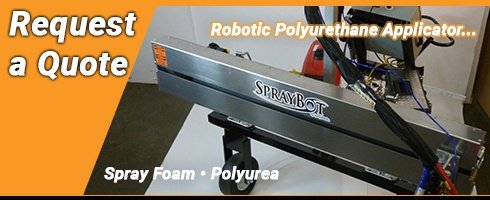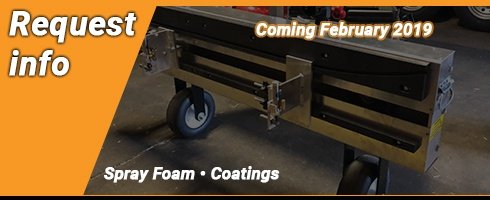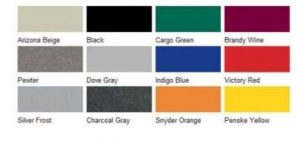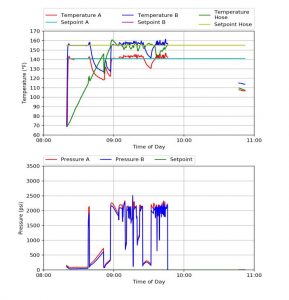With the ever increasing need to save energy, combined with incentives to utilize more efficient insulation, spray polyurethane foam insulation is fast becoming the insulation of choice. These changes have spawned a new generation of foam applicators, in turn, providing a competitive atmosphere in the marketplace. Material manufacturers have flooded the marketplace and knowing which to choose can be a daunting task. Material will ultimately be the most expensive ongoing product your company will consistently need and you can’t afford to play trial and error – especially when your company’s reputation is at stake.
We’ve seen a lot of guys simply ask other industry professionals which product they use, but it ultimately comes down to your specific needs. For example; if your Facebook buddy says, “this is the product to use, I won’t use anything else” but he sprays chicken coops and you spray roofs, he’s not necessarily the best person to ask and brings you back to square one. Or, if you live in New York and your buddy lives in Florida, you are dealing with two very different climates that require very different needs. Here, we share some common questions applicators ask, when choosing a product and how to narrow down your choices.
Common Questions About Spray Foam Insulation
-
Does the spray foam provide for an efficient installation?
First thing to understand is that different chemical reactions are required for different seasons. Most material made for summer grade will not work well in the winter and requires proper storage if not in use through the winter. Choosing the right material can yield very efficient results, as long as you properly understand your equipment, and everything is working correctly on the back end.
Most material manufacturers will make a courtesy visit to your job site to make sure you understand how the material should be sprayed in order to yield the best results. It is important to know, not all material reps are equipment savvy. You paid a lot of money for your equipment so don’t assume they know how to properly operate it. Have a foreman handy to take the instruction and do the spraying. Also, oftentimes, material reps will get commissioned off of selling additional equipment with their material – so it’s important to have a knowledgeable foreman available that knows what you need and don’t need. Otherwise, material reps can be very helpful in getting you started with a new material and can be the difference of whether it is successful for you or not.
-
Does the spray foam meet the requirements?
Depending on where you live, different states or countries have different requirements. Canada references the manufactures specific color of material to easily identify not only the manufacture but further assure the product is certified. Whereas, the United States does not have color requirements.
OSHA has another set of requirements, which should never be overlooked. You are responsible for the health and safety of your employees while they are on the job, so not only proper PPE is required, but proper material is required for different projects. For example, open cell foam should never be exposed to the elements and is intended for indoor use, whereas roofing foam is designed for roofs to hold up to the rigors of roofs and oftentimes create a suitable base for coatings.
-
How will the spray foam I choose effect the installation process?
As you continue to use different materials, you will realize different materials require different processing pressure, heat settings and spray tips. If your material is not spraying well, it could simply be the spray tip you are using. The material manufacturer can typically tell you what tip works best with your spray foam.
Perhaps the most impactful variable will be the environmental conditions while spraying. Temperature and humidity being the greatest. Spray foams are sold for seasonal conditions and often are labelled by their seasonal use being winter, summer and fall grades to maximize yield.
All spray foam requires PPE and there should never be a homeowner exposed to the chemicals. Always make sure the homeowner is aware that the space needs to be cleared in order for the material to be safely applied.
These are just some of the factors to consider. Tell us what other factors you like to consider when choosing your foam.








